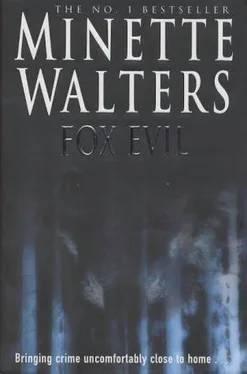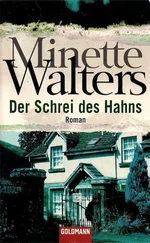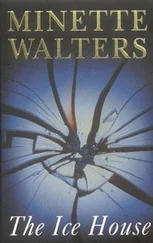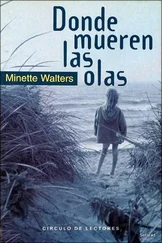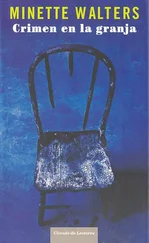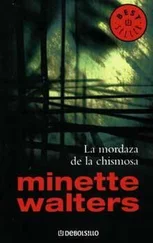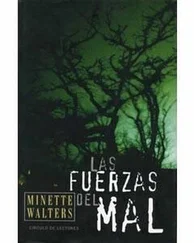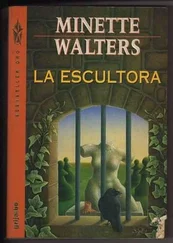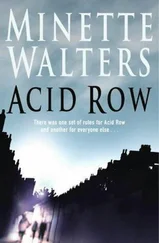Minette Walters - Fox Evil
Здесь есть возможность читать онлайн «Minette Walters - Fox Evil» весь текст электронной книги совершенно бесплатно (целиком полную версию без сокращений). В некоторых случаях можно слушать аудио, скачать через торрент в формате fb2 и присутствует краткое содержание. Жанр: Триллер, на английском языке. Описание произведения, (предисловие) а так же отзывы посетителей доступны на портале библиотеки ЛибКат.
- Название:Fox Evil
- Автор:
- Жанр:
- Год:неизвестен
- ISBN:нет данных
- Рейтинг книги:4 / 5. Голосов: 1
-
Избранное:Добавить в избранное
- Отзывы:
-
Ваша оценка:
- 80
- 1
- 2
- 3
- 4
- 5
Fox Evil: краткое содержание, описание и аннотация
Предлагаем к чтению аннотацию, описание, краткое содержание или предисловие (зависит от того, что написал сам автор книги «Fox Evil»). Если вы не нашли необходимую информацию о книге — напишите в комментариях, мы постараемся отыскать её.
Fox Evil — читать онлайн бесплатно полную книгу (весь текст) целиком
Ниже представлен текст книги, разбитый по страницам. Система сохранения места последней прочитанной страницы, позволяет с удобством читать онлайн бесплатно книгу «Fox Evil», без необходимости каждый раз заново искать на чём Вы остановились. Поставьте закладку, и сможете в любой момент перейти на страницу, на которой закончили чтение.
Интервал:
Закладка:
PREPARED COPY FOR WESSEX TIMES -27 DECEMBER 2001
DORSET DOG FIGHTING
West Dorset Hunt's Boxing Day meet was abandoned in chaos after well-organized saboteurs fooled the hounds into following false trails. "We've had a 10-month layoff and the dogs are out of practice," said huntsman Geoff Pemberton, as he tried to regain control of his pack. The fox, the alleged reason for this clash of ideologies, remained elusive.
Other hunt members accused saboteurs of deliberate attempts to unseat them. "I was within my rights to protect myself and my mount," said Julian Bartlett after striking Jason Porritt, 15, with his crop. Porritt, nursing a bruised arm, denied any wrongdoing despite an attempt to grab Mr. Bartlett's reins. "I was nowhere near him. He rode at me because he was angry."
As frustration mounted, so did the noise levels, with honors even in the obscenity department. Gentlemanly behavior on horseback and the moral high ground of campaigning for animal welfare were forgotten. This was turf warfare on the terraces during a lackluster Arsenal v. Spurs local derby, where sport was merely the excuse for a rumble.
Not that any of the huntsmen or their supporters defined what they were doing as sport. Most suggested it was a Health & Safety exercise, a quick and humane method of exterminating vermin. "Vermin is vermin," said farmer's wife Mrs. Granger, "you have to control it. Dogs kill cleanly."
Saboteur Jane Filey disagreed. "It's defined in the dictionary as sport," she said. "If it was just a question of exterminating a single verminous animal, why do they get so angry when the event is sabotaged? The chase and the kill are what it's all about. It's a cruel and uneven version of a dogfight with the riders getting a privileged view."
This wasn't the only dogfight on offer in Dorset yesterday. Travelers have moved onto woodland in Shenstead Village and are guarding the roped-off site with German shepherds. Visitors should beware. "Keep out" notices and warnings that "the dogs will have you" if you breach the barrier are a clear indication of intent. "We are claiming this land by adverse possession," said a masked spokesman, "and like all citizens we have a right to protect our boundary."
Julian Bartlett of Shenstead House disagreed. "They're thieves and vandals," he said. "We should set the pack on them."
Dogfighting, it seems, is alive and well in our beautiful county.
Debbie Fowler
17
Time was running out for Nancy. She had an hour to report to Bovington Camp, but when she tapped her watch and reminded Mark, he looked appalled. "You can't go now," he protested. "James is behaving as if he's had a blood transfusion. You'll kill him off."
They were in the kitchen, making tea, while James stoked the fire in the drawing room. James had been remarkably chatty since they left the campsite, but his conversation had been related to the wildlife that inhabited the Copse and not to the subject of the travelers or what had happened to Henry. He was as reticent about that as he had suddenly become about Ailsa's foxes before lunch, saying it wasn't a fit topic for Christmas.
Neither Mark nor Nancy had pressed him. Nancy didn't feel she knew him well enough, and Mark was reluctant to stray into any area that might raise more questions than it answered. Nevertheless, they were both curious, particularly about the name Fox.
"It's a bit of a coincidence, don't you think?" Nancy had murmured as they entered the kitchen. "Mutilated foxes and a man called Fox on the doorstep. What do you suppose is going on?"
"I don't know," said Mark truthfully, his mind obsessed with the coincidence of Fox and Lockyer-Fox.
Nancy didn't believe him but nor did she feel she had a right to demand explanations. Her grandfather both intrigued and intimidated her. She told herself it was the natural order of the army: captains looked up to colonels. It was also the natural order of society: youth looked up to age. But there was something else. A repressed aggression in James-despite his age and frailty-that broadcast "keep out" as effectively as the travelers' notices. Even Mark trod carefully, she noticed, despite a relationship with his client that spoke of mutual respect.
"It would take more than my departure to kill him off," she said now. "You don't become a colonel by accident, Mark. Apart from anything else, he fought in the jungles of Korea… spent a year in a POW camp undergoing Chinese brainwashing… and was decorated for heroism. He's tougher than you or I will ever be."
Mark stared at her. "Is that true?"
"Yup."
"Why didn't you tell me before?"
"I didn't realize I had to. You're his solicitor. I assumed you knew."
"I didn't."
She shrugged. "You do now. He's quite something, your client. A bit of a legend in his regiment."
"Where did you find out all this?"
She started to clear the lunch plates from the table. "I told you… I looked him up. He's mentioned in several books. He was a major at the time and took over as senior officer of the British group in the POW compound when the previous SCO died. He was confined to solitary for three months because he refused to order a ban on religious gatherings. The roof over his cell was corrugated iron and when he came out he was so baked and dehydrated his skin had turned to leather. The first thing he did on release was conduct a lay service… his sermon was entitled 'Freedom of Thought.' After the service was over, he accepted a drink of water."
"Jesus!"
Nancy laughed as she filled the sink. "Some might say so. I'd say sheer bloody guts and bolshiness, myself. You shouldn't underestimate him. He's not the type to give in to propaganda. He wouldn't be quoting Clausewitz if he were. It was Clausewitz who coined the phrase 'fog of war' when he saw how the clouds of smoke from the enemy's guns during the Napoleonic Wars deceived the eye into thinking the opposing army was larger than it actually was."
Mark was busy opening cupboard doors. It was she who was the romantic, he thought, jealousy of the old man's heroism gnawing away at his heart. "Yes, well, I just wish he'd be a bit more forthcoming. How am I supposed to help him if he doesn't tell me what's going on? I had no idea Henry had been killed. James said he died of old age."
She watched his fruitless search. "There's a caddy on the worktop," she said, nodding toward a tin box with the logo "tea" on it. "The teapot's beside it."
"Actually, I was looking for mugs. James is too good a host. The only thing he's let me do since I arrived was today's lunch… and then only because he wanted to talk to you." Too bloody afraid Mark would plug in the telephone jack and intercept a Darth Vader phone call, he thought.
She pointed a finger over his head. "Hanging on hooks above the Aga," she told him.
He raised his eyes. "Oh, yes. Sorry about this." He cast around the worktops for electric sockets. "You can't see the kettle as well, can you?"
Nancy suppressed a laugh. "I think you'll find it's that big round thing on the Aga. You don't plug it in, though. It's the old-fashioned method of heating water. Assuming the kettle's full, you just lift the chrome lid on the left and bring the water back up to the boil by putting the kettle on the hotplate."
He did as instructed. "I suppose your mother has one of these?"
"Mm. She leaves the back door open so that everyone can help themselves whenever they want." She rolled up her sleeves and started on the washing-up.
"Even strangers?"
"Dad and his workers usually, but the odd passerby comes in from time to time. She found a tramp in the kitchen once, swigging tea like there was no tomorrow."
Mark spooned tea leaves into the teapot. "What did she do?"
"Made up a bed and let him stay for two weeks. When he left he took half her silver with him, but she still refers to him as 'that funny old man with the tea addiction.'" She broke off as he reached for the kettle. "I wouldn't do that, if I were you. Those handles get very hot. Try using the oven glove to your right."
Читать дальшеИнтервал:
Закладка:
Похожие книги на «Fox Evil»
Представляем Вашему вниманию похожие книги на «Fox Evil» списком для выбора. Мы отобрали схожую по названию и смыслу литературу в надежде предоставить читателям больше вариантов отыскать новые, интересные, ещё непрочитанные произведения.
Обсуждение, отзывы о книге «Fox Evil» и просто собственные мнения читателей. Оставьте ваши комментарии, напишите, что Вы думаете о произведении, его смысле или главных героях. Укажите что конкретно понравилось, а что нет, и почему Вы так считаете.
